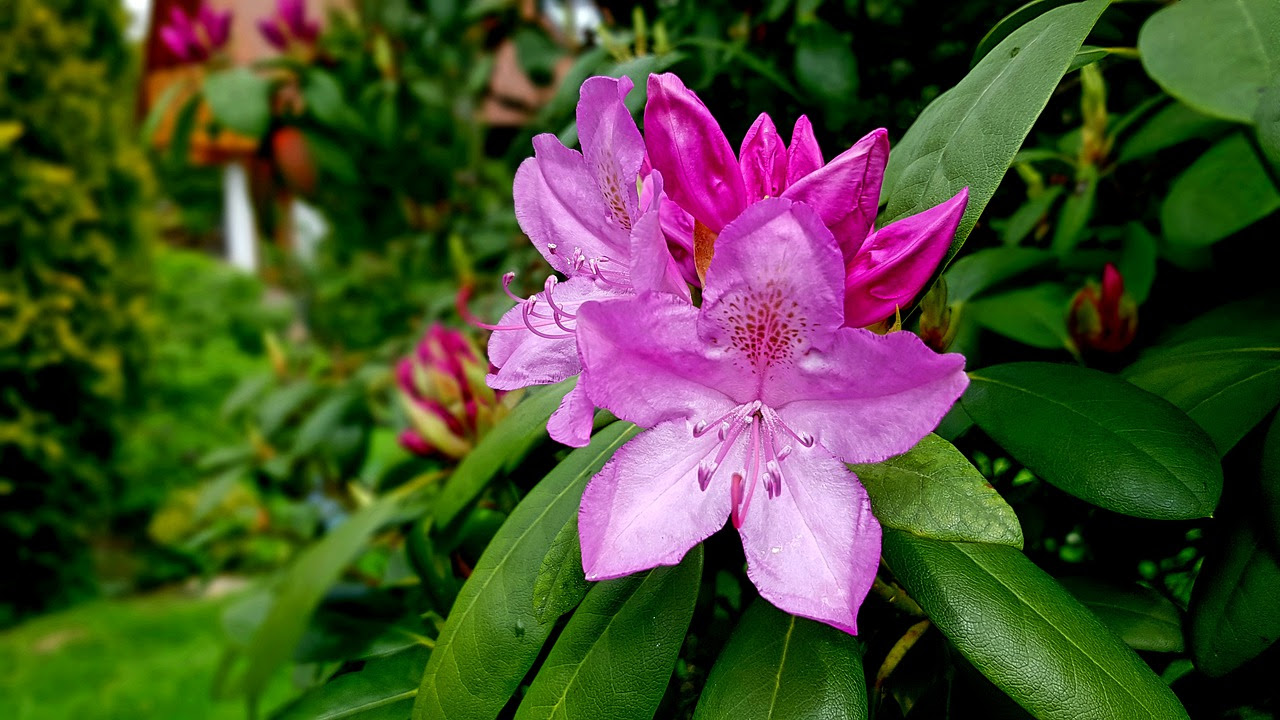Soil Is the Building Block for Your Jamison Lawn & Landscape: What You Need to Know About Soil Testing
Do you know that soil is the building block for your Jamison lawn and landscape?
It’s truly a building block and the “house” where the plant meets all of its needs. So, if the ground where your plants live doesn’t have enough of the proper nutrients, then your lawn and landscape won’t thrive—and possibly not survive Pennsylvania’s relentlessly hot summers.
Why Test the Soil?
At Jamison Lawn Care, we take soil samples from your flowerbeds, landscaped areas, and lawn.
After taking soil samples throughout your property, we put them in a bucket. We’ll then mix these soils and put the mixture into a plastic bag to send to a Penn State testing lab.
Read more: What You Need to Know about Spring Cleanup
The Penn State soil analysis lab will test for plant-available nutrients, including
- Calcium
- Copper
- Magnesium
- Manganese
- Phosphorus
- Potassium
- Sodium
- Sulfur
- Zinc.
The soil test also measures the soil’s pH, including humic acid and matter availability. Plants grow, thrive, and survive in soil with the correct pH and humic matter, allowing roots to uptake nutrients from fertilizer.
Penn State includes recommended fertilizer rates and soil amendments, such as lime, needed to adjust the soil’s pH. At Jamison Lawn Care, we recommend soil testing every three to four years.
How Jamison Lawn Care Uses Fertilizer and Soil Amendments to Rehabilitate Your Soil
We take your soil test results and design a lawn and landscape program specific to your property. Plants, grass seed, and fertilizer are expensive investments, and you want to get a return on your investment.
You get the ROI when you allow us to test your soil and then add the amendments to bring back a robust ecosystem underground. Healthy soil allows plant roots to grow down deep and have the nutrients available for plants to absorb.
You’ll notice brighter flowerbeds and colorful shrubs too. Plus, your lawn will be dark green that grows thickly to crowd out weeds.
If you’re ready to take your lawn and landscape up to the next level, you need us at Jamison Lawn Care to take soil samples for testing to ensure a flourishing lawn and landscape this spring.
We serve homeowners and commercial properties in Buckingham and Warwick Townships, including these Pennsylvania towns: Chalfont, Doylestown, Furlong, Hatboro, Horsham, Jamison, Southampton, Warminster, Warrington, and Warwick.
Call us today at 267-621-4747 or fill out our contact form to set up your soil test appointment.
Source
Extension.psu.edu, Soil Testing.
Plant of the Month: Rhododendron
Rhododendron and its sister, azalea, have graced eastern Pennsylvania landscapes for generations. Both flowering shrubs belong to the Rhododendron family.
There are many rhododendron varieties available and these plants come in different sizes. Plus, rhododendrons come in an extensive medley of colors, including
- Rich burgundies
- Pinks from light pink to magenta
- Peach to orange
- Purples from lilac to deep purple
- Blues from midnight blue to periwinkle
- And white.
Homeowners, growers, and rhododendron enthusiasts love this remarkable shrub. And rhododendron enthusiasts can join the American Rhododendron Society, which has a chapter in Bethlehem, Pennsylvania!
In a 1994 Rhododendron Society journal article, Jan D. Kelley explains the top reasons why rhododendrons die. Here’s the list:
- Too much water
- Too little water
- Too much fertilizer
- Planting the shrubs too deep
- Cold winters
- Too much sun exposure in the summer
- Fungal diseases.
Rhododendrons are popular shrubs because they do well in dappled shade and have evergreen leaves. However, their leaves need protection over the winter from drying winds.
Read more: Pricing Lawn and Landscape Services
Rhododendrons prefer well-drained, acidic soil, but they don’t do well when the ground is constantly soggy.
Rhododendron Care
When we at Jamison Lawn Care install new rhododendrons, we’ll make sure that they’re placed where they don’t get morning sunshine and aren’t in a direct line of winds coming from the north.
We’ll test your soil to ensure it’s acidic enough for rhododendrons. These classic beauties need the soil’s pH to be between 4.5-5.5. We recommend grouping rhododendrons rather than only buying one or two specimens.
Here are four tips for caring for your rhododendrons:
- We’ll put down mulch to help the soil retain moisture and protect the shrubs from root rot.
- We recommend that we fertilize your rhododendrons in the fall.
- We suggest that you keep the soil moist because rhododendrons don’t do well under wilt stress.
- We recommend that you deadhead spent blooms, so the rhododendrons continue to blossom for you.
Rhododendrons provide year-round color in your Jamison landscape with their beautiful spring blossoms and evergreen leaves throughout the year.
We serve homeowners and commercial properties in Buckingham and Warwick Townships, including these Pennsylvania towns: Chalfont, Doylestown, Furlong, Hatboro, Horsham, Jamison, Southampton, Warminster, Warrington, and Warwick.
Call us today at 267-621-4747 or fill out our contact form to set up your rhododendron consultation.
Sources:
Almanac.com, Rhododendrons and Azaleas.
GardeningKnowHow.com, Growing Rhododendron: Caring for Rhododendrons in the Garden.
Rhododendron.org, Top Causes of Death in Rhododendrons.

